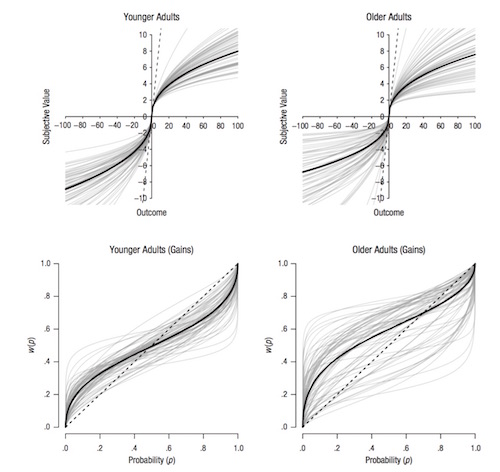
Thorsten Pachur, Ralph Hertwig, and I have a new paper out on age differences in risky choice (title, abstract, and reference follow).
Who Dares, Who Errs? Disentangling Cognitive and Motivational Roots of Age Differences in Decisions Under Risk
We separate for the first time the roles of cognitive and motivational factors in shaping age differences in decision making under risk. Younger and older adults completed gain, loss, and mixed-domain choice problems as well as measures of cognitive functioning and affect. The older adults’ decision quality was lower than the younger adults’ in the loss domain, and this age difference was attributable to the older adults’ lower cognitive abilities. In addition, the older adults chose the more risky option more often than the younger adults in the gain and mixed domains; this difference in risk aversion was attributable to less pronounced negative affect among the older adults. Computational modeling with a hierarchical Bayesian implementation of cumulative prospect theory revealed that the older adults had higher response noise and more optimistic decision weights for gains than did the younger adults. Moreover, the older adults showed no loss aversion, a finding that supports a positivity-focus (rather than a loss-prevention) view of motivational reorientation in older age.
Be the first to leave a comment. Don’t be shy.